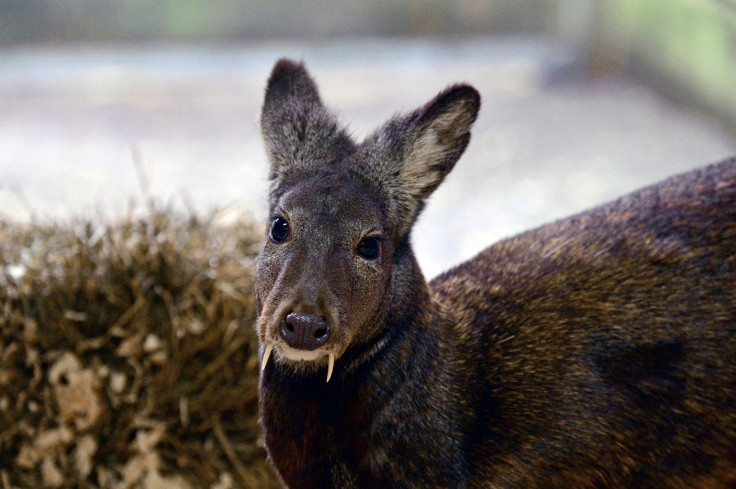Vampire-Fanged Deer Found In Afghanistan Is A ‘Living Treasure,’ Rare Species Not Seen For Over 66 Years

A rare deer with fangs that would make Dracula do a double take was recently spotted in Afghanistan for the first time in 66 years, proving that the elusive and bizarre species has survived decades of poaching and habitat loss. The last time the Kashmir musk deer was seen in the wild in Afghanistan was in 1948, according to a study published Friday by the Wildlife Conservation Society.
"Musk deer are one of Afghanistan's living treasures," study co-author Peter Zahler said in a statement. He said the rare species, once widely distributed across the mountains of Afghanistan, India and Pakistan, was the “natural heritage” of the region, much like the endangered snow leopard. “We hope that conditions will stabilize soon to allow [the society ] and local partners to better evaluate conservation needs of this species,” Zahler said. Scientists doing surveys in the Afghanistan’s rugged northeastern terrain recently spotted five Kashmir musk deer.
Scientists said they were unable to photograph the deer because they were “discreet” and “difficult to spot.” There are seven similar species of musk deer that inhabit parts of Asia, most notably the Himalayas. They differ from other species of deer in that they lack antlers and facial glands. Musk deer typically live in hilly, forested areas, are herbivores and are generally shy creatures that avoid humans.
The Kashmir musk deer stands just a little over two feet tall. Only the male Kashmir musk deer grows vampire-like fangs that he uses when competing against other males for mates. The species had all but disappeared because of their prized scent glands, which produce a musk that the deer uses to mark its territory. For thousands of years, the glands of musk deer have been used in traditional medicines and perfumes all over Asia and have more recently sold for more than $20,000 a pound on the black market.
"Gram for gram, musk is one of the most valuable products in the natural kingdom and can be worth three times more than its weight in gold," Stuart Chapman of the UK branch of the World Wildlife Fund told National Geographic in 2004. He said that musk deer across Asia have become “seriously endangered” due to poaching. Conservationists estimated that between 17,000 and 20,000 musk deer stags have been killed in Russia every year.
© Copyright IBTimes 2024. All rights reserved.





















